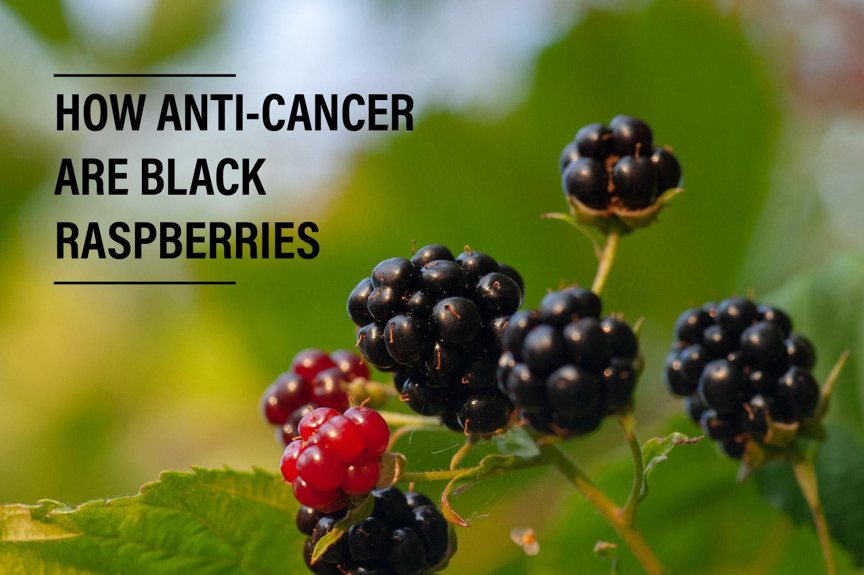Korean Black Raspberries: Superfood with Super Powers?

Cancer is a touchy subject – due to our longer life expectancy, many people are exposed to cell mutations, which are (in simple terms) the main cause of cancer. So, many people look out for possible preventative measures before any conditions get out of hand. In this pursuit, Korean black raspberries have proven to be effective in doing so.
By now, you should know that Korean black raspberries are filled with natural and healthy substances. Aside from their high fibre and nutrient count, which berries are commonly for, black raspberries also contain anthocyanins, gallic acid, and ellagic acid – all three of which are associated with anti-cancer abilities[1].
Anthocyanins are probably a term you are more familiar with. These chemicals are coloured pigments that also act as antioxidants1. Research has shown that berry products, not just raw berries, are also great sources of anthocyanins[2]. So, our Korean black raspberry juice and vinegar products (available at https://www.idoori.com/category/black-raspberry) are scientifically proven to be great additions in our fight against carcinogens as the anthocyanins tend to prevent proliferation of cancer cell lines[3].
Gallic and ellagic acid, on the other hand, have been proven to be effective in preventing specific types of cancer. Gallic acid has conclusively shown to have the ability to inhibit prostate cancer cell growth while also promoting their cell death as well[4]. Ellagic acid, on the other hand, is linked to preventing colon, lung, and oesophageal cancer[5].
The exact mechanism of how these chemicals reduce or treat cancer cells is a bit convoluted. However, the Korean Black Raspberries have Anthocyanins, Ellagic and Gallic acid which are found to stop cancer cells from growing by preventing various stages of a cancer cell’s life cycle, thereby disrupting their ability to grow and spread[6]. The presence of these compounds make the Black Raspberry Juice the prime choice for encouraging the body to get rid of the dysfunctional cancer cells.
In conclusion, the Korean black raspberry is rich in many substances which have the potential to either slow the cancer’s rate of growth or reduce the actual number of cancer cells in the body. To this end, a simple berry can treat a condition that many people fear greatly. As more people begin to watch what they eat, adding “anti-cancer potential” in your diet is a great step to achieving that end.
The information contained in the post is for general purpose only and should not be considered as medical advice.
[1] Nile, S. H., & Park, S. W. (2014). Edible berries: Bioactive components and their effect on human health. Nutrition, 30(2), 134–144. doi:10.1016/j.nut.2013.04.007
[2] Lopes da-Silva F., Escribano-Bailon M.T., Perez-Alonso J.J., Rivas-Gonzalo J., Santos-Buelga C. (2007). Anthocyanin pigments in strawberry. LWT Food Science Technology 2007;40:374–82.
[3] Seeram N.P., Zhang Y., Nair M.G. (2003). Inhibition of proliferation of human cancer cells and cyclooxygenase enzymes by anthocyanidins and Catechins. Nutr Cancer 2003;46:101–6
[4] Source: Nile, S. H., & Park, S. W. (2014). Edible berries: Bioactive components and their effect on human health. Nutrition, 30(2), 134–144. doi:10.1016/j.nut.2013.04.007
[5] Kalt W, Forney CF, Martin A, Prior RL. (1999). Antioxidant capacity vitamin C phenolics and anthocyanins after storage of small fruits. J Agric Food Chem 1999;47:4638–44
[6] Ceci, C., Lacal, P., Tentori, L., De Martino, M., Miano, R., & Graziani, G. (2018). Experimental Evidence of the Antitumor, Antimetastatic and Antiangiogenic Activity of Ellagic Acid. Nutrients, 10(11), 1756. doi:10.3390/nu10111756







